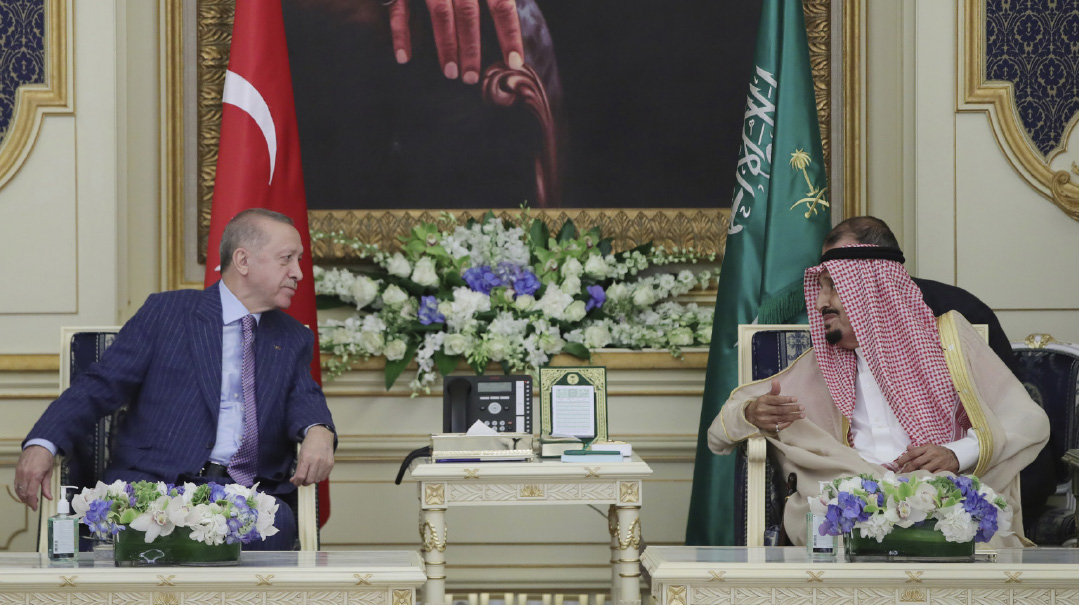The Return of Turkey’s Sultan


Photos: AFP/IMAGEBANK
A
century after the collapse of the Ottoman Empire, Turkey has a new sultan.
That sobering news emerged Sunday, when Recep Tayyip Erdogan, who has ruled Turkey since 2003, swept Sunday’s presidential and parliamentary elections in imperial style. The margin of victory — 53%, against 31% for Muharrem Ince’s center-left Republican People’s Party — surprised many observers who had predicted Erdogan’s defeat on the parliamentary ballot. The victory hands the president and his Justice and Development Party (AKP) another five years to entrench its power and further its project to Islamize the secular Turkish state.
As red-flag-draped Erdogan supporters flooded the streets to celebrate, analysts sought to explain what the victory means for Turkey’s democracy and its relations with the West.
Dr. Hay Eytan Yanarocak, a Turkey specialist at the Moshe Dayan Center at Tel Aviv University, said Turkish voters supported Erdogan because they see him as one of their own. “He has a populist style, and even if he lives in a palace, Turks see this as a symbol of Turkey’s glory — like the sultans — not as corruption.”
Yanarocak added that Erdogan speaks to the Turkish people’s fears about Western domination. “He combines nationalism with Islam, and they see him as protecting the country against foreign influence, for which they blame Turkey’s economic troubles.”
A pre-election wave of support for anti-Erdogan parties led many to hope that Turkey’s beleaguered democracy could be revived with an emboldened opposition. A faltering economy and fears of an autocratic Erdogan assuming powers Turkish voters approved in 2017 had lifted the opposition early. But all hopes for an opposition victory have been dashed as a victorious Erdogan assumes new presidential powers, including the power to elect 13 out of 15 constitutional judges, effectively making him unimpeachable.
For Turkey’s nominal allies in the West, Erdogan’s victory means the continuation of an uneasy alliance. A longtime NATO member, Turkey this week took delivery of its first American-made F-35 fighter jets. At the same time, Turkey has purchased the Russian-made S-400 anti-aircraft missile system, which would theoretically allow the Turks to train a Russian system against American military hardware. Meanwhile, the European Union needs Turkey’s assistance to stop the flow of Syrian refugees from reaching Europe.
For Israel, Erdogan’s victory means a bitter critic is entrenched in power for the foreseeable future. Worse yet, Erdogan has increased his use of anti-Israel and anti-Jewish rhetoric to stir the masses.
The Jewish community in Turkey, once home to a glorious kehillah under the Ottoman Empire, has dwindled today to approximately 20,000 people. Their fear is palpable: Jewish leaders are reluctant to speak even off the record. A former community official told Mishpacha that given the lack of democracy and the anti-Israel feeling permeating Turkish society, “there is no Jewish future here.”
As Erdogan’s supporters celebrate the strongman’s triumph, Turkey’s erstwhile allies see a country on the fast track to Islamicization and a growing foreign-policy headache.
The Era of Autocrats
Turkey’s Recep Tayyip Erdogan
In power since 2003, the president has made changes to the constitution that allow him to rule another ten years.
Russia’s Vladimir Putin
In power since 2000, Putin was reelected in 2018 for another six years.
China’s Xi Jinping
Elected in 2012, the general secretary of the Communist Party altered the constitution this year to scrap term limits.
(Originally featured in Mishpacha, Issue 716)
Oops! We could not locate your form.













